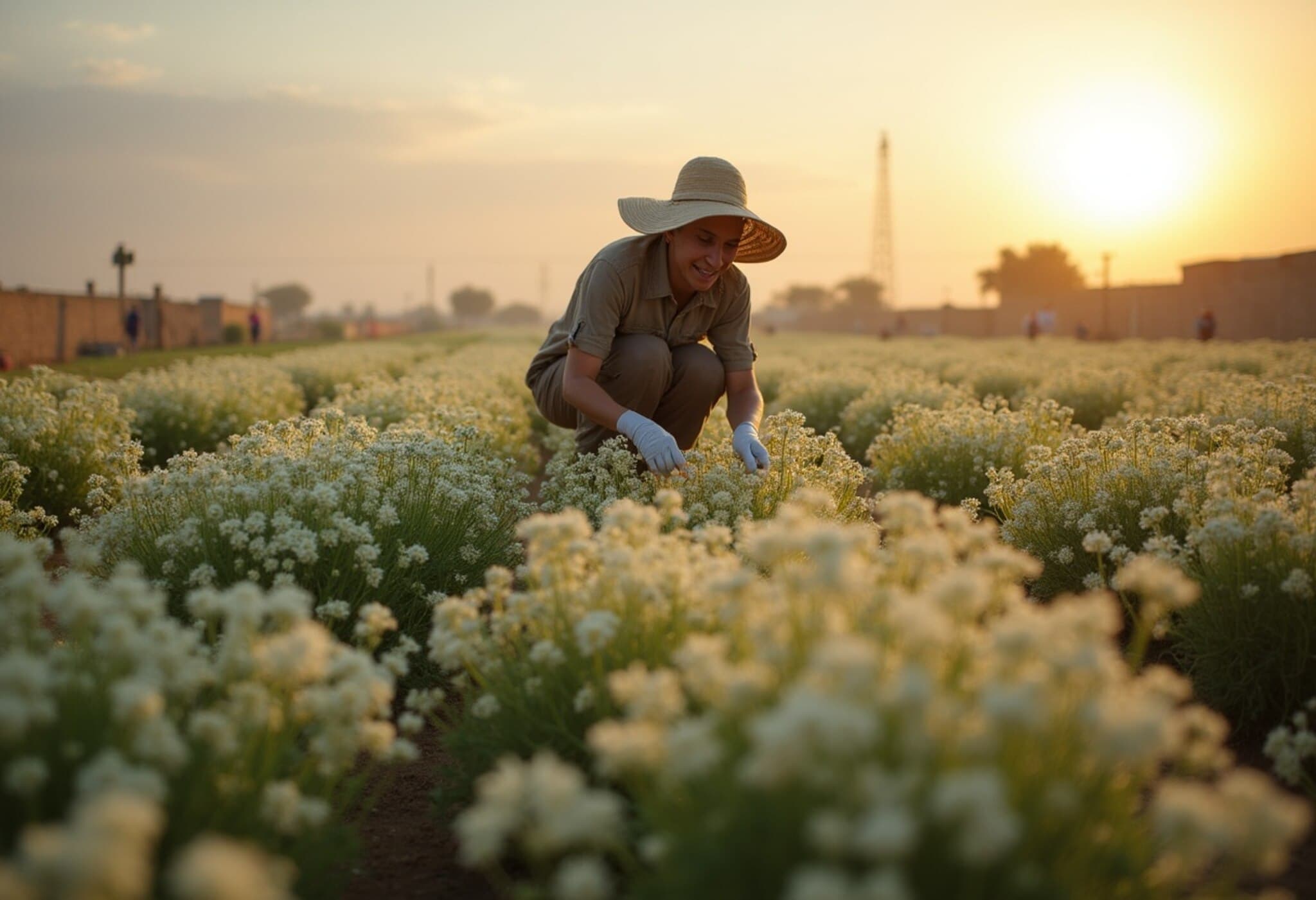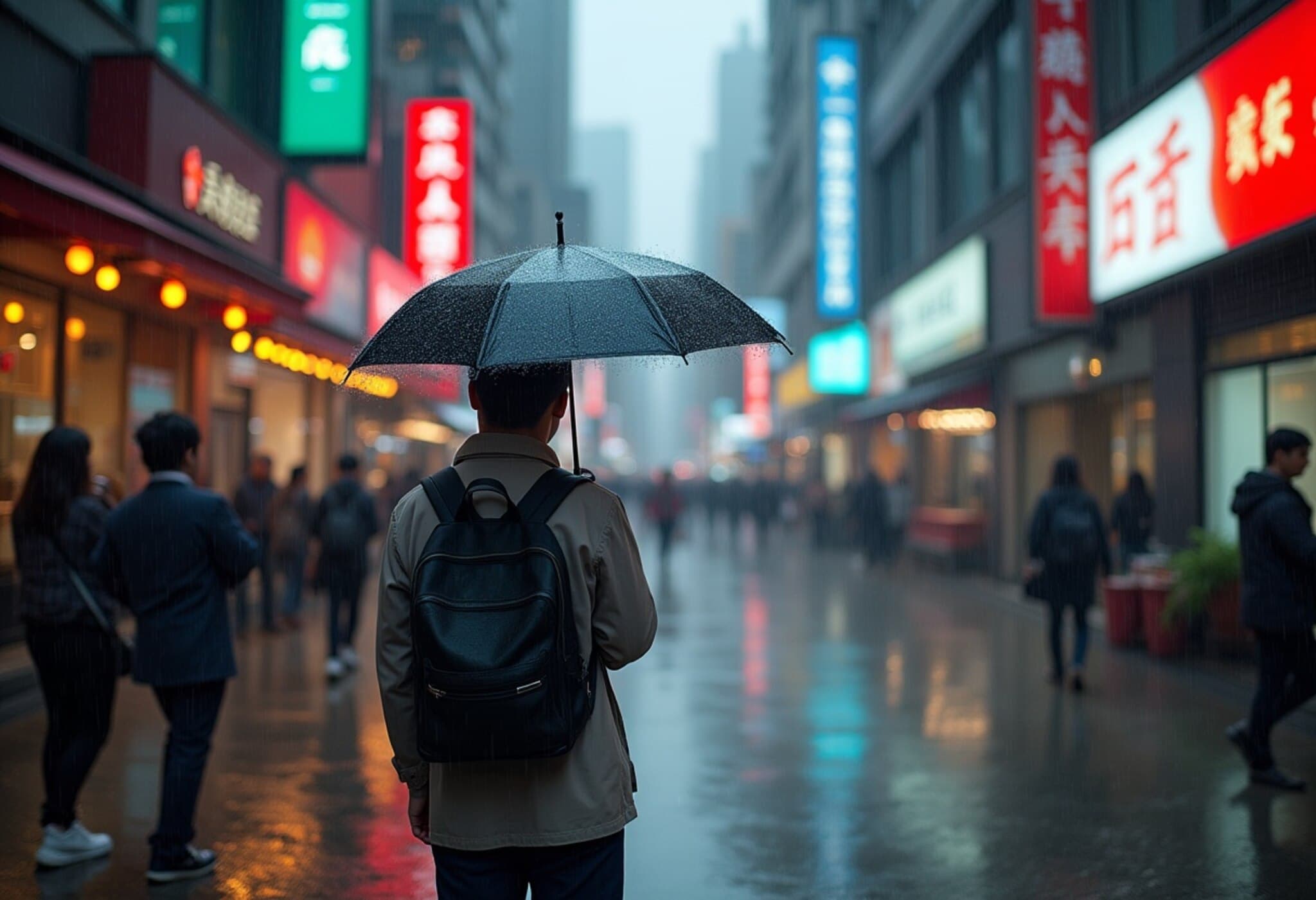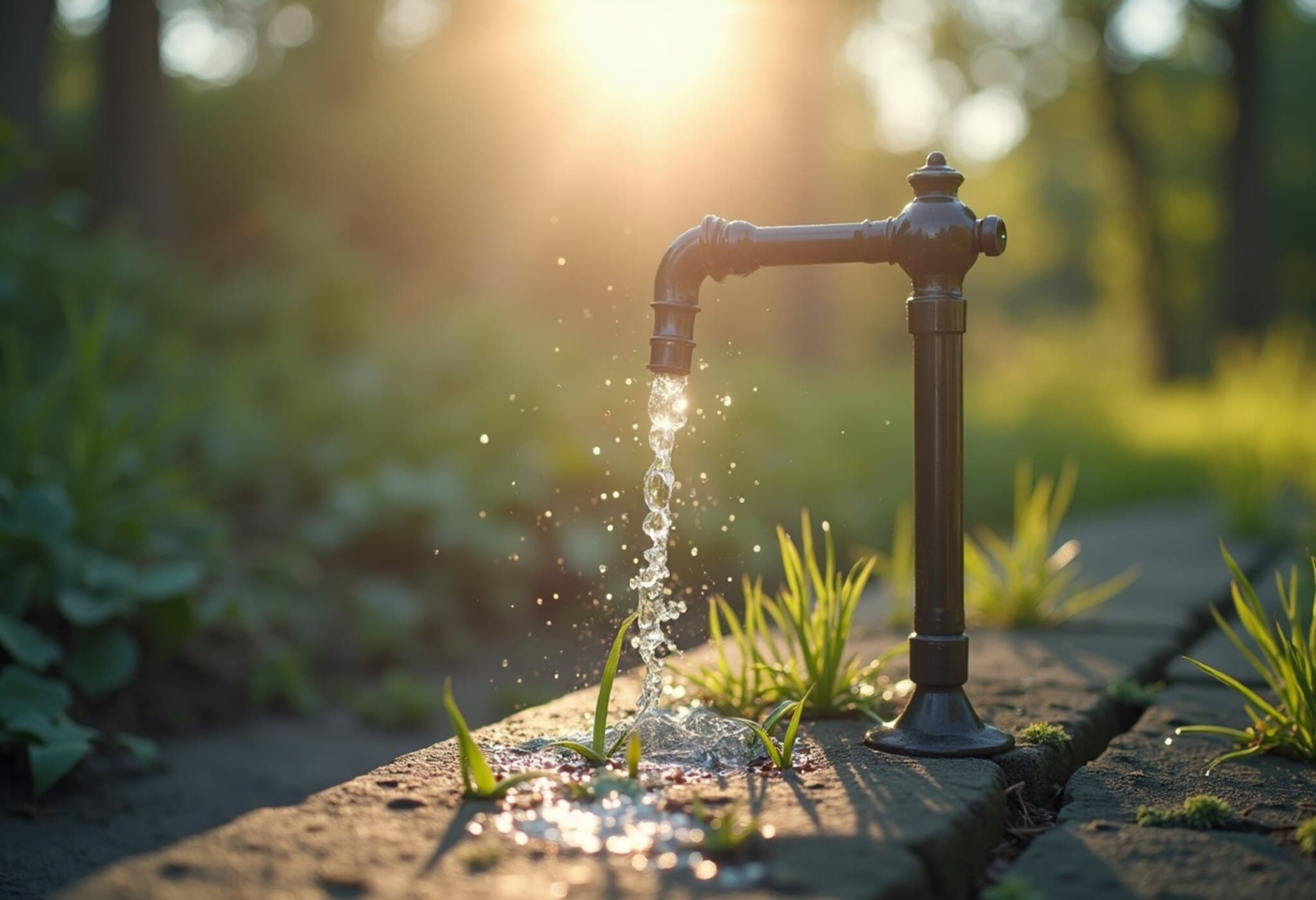Egypt's Jasmine Farmers Confront Climate Change Impact
In Egypt’s fertile Nile Delta, jasmine fields once flourishing under cool nights now face the relentless squeeze of rising temperatures and shifting weather patterns. For farmers like Wael al-Sayed, whose family has hand-picked jasmine blooms for global perfume houses for nearly a decade, the story is one of shrinking harvests and diminishing hopes. “It’s the heat,” says the 45-year-old farmer from Shubra Balula, a key hub of Egypt’s jasmine production, located approximately 100 kilometers north of Cairo. Over the past two years, his daily collection of jasmine blossoms has halved—from six kilograms to barely two or three.
The Jasmine Industry: A Cultural and Economic Pillar at Risk
Jasmine cultivation in the Nile Delta area is more than just an agricultural activity; it is an intergenerational tradition that supports thousands of families. For decades, entire communities have risen in the preludes to dawn, harvesting jasmine under the fragile glow of moonlight, handpicking the flowers at their most fragrant peak between June and October. Yet, with climate change fueling prolonged dry spells, unpredictable rains, and an upsurge in pests, the very survival of this craft is endangered.
- Child labour concerns: Economic hardship pushes families to bring children into the fields, often forcing them to stay up overnight in arduous conditions.
- Declining yields: Rising temperatures stress jasmine plants, resulting in fewer blooms and weaker fragrance oils critical to perfumery.
- Economic pressures: Farmers and pickers earn meager wages slipping further against escalating inflation and currency devaluation.
Climate Change Hits Perfume’s Heart
Egypt is responsible for producing nearly half of the world's jasmine concrete, a waxy aromatic extract vital to luxury fragrances globally. Historically, production soared to 11 tonnes annually in the 1970s. Today, it has dropped to 6.5 tonnes, reflecting the tangible losses driven by environmental factors. Experts like Karim Elgendy of the Carboun Institute highlight how increased heat disruptions directly reduce flowering and oil quality in jasmine.
A 2023 report by the International Energy Agency notes that Egypt’s temperature has risen by 0.38°C per decade between 2000 and 2020—significantly faster than the global average. This warming not only diminishes the jasmine's scent potency but fosters pests like spider mites and leaf worms, further eroding yields. For Mohamed Bassiouny and his family, the harvest has halved over recent years, turning what was once a few arduous hours of work into an exhausting full-day endeavor.
The Human Cost: Labour Exploitation Amid a Crisis
Despite the global luxury perfume market commanding prices of up to $6,000 per kilogram of jasmine absolute (the purified essence), local pickers earn a paltry $2 per kilogram. This glaring disparity underscores a stark inequality where labourers shoulder the greatest risks and hardships yet reap the least benefits.
With the Egyptian pound plunging by over two-thirds in value since 2022, families face heightened economic vulnerability. In a rare show of defiance, jasmine pickers organized a strike last June demanding better wages. Their plea for 150 Egyptian pounds per kilogram was circumvented by private processors, resulting in only a modest raise of 10 pounds, offering little relief for those on the frontline.
Looking Ahead: Fragile Traditions and Environmental Uncertainty
The Nile Delta’s vulnerability to both climate change and rising Mediterranean sea levels threatens to further degrade soil and farming conditions. As salinity rises and temperatures climb, experts warn that entire villages may risk losing their agricultural viability—and with it, their very existence.
Rural sociologist Saker El Nour voices a poignant concern: these communities are at the mercy of larger global systems yet receive scant support or advocacy. The perfume industry’s reliance on natural ingredients is a stark reminder of climate change’s reach, revealed eloquently by Alexandre Levet, CEO of the French Fragrance House in Grasse, who notes that climate shifts force the search for new raw material origins worldwide.
Expert Insights: Bridging Sustainability and Social Equity
The struggle of Egypt’s jasmine farmers offers a critical lens on the intersection of environmental, economic, and social challenges. Policymakers and global brands face an imperative to enable sustainable farming practices, protect vulnerable labour populations—especially children—and foster fair-trade mechanisms that ensure locals receive equitable earnings.
Additionally, increased investment in climate-resilient agriculture, integrated pest management, and community empowerment could help safeguard Egypt’s jasmine heritage that dazzles the world’s senses. As consumers, raising awareness of climate’s impact on beloved commodities like perfume may also foster support for ethical sourcing and environmental stewardship.
Editor’s Note
Egypt’s jasmine farmers are emblematic of a broader climate crisis where environmental change devastates traditional livelihoods. Their story invites reflection on how global luxury markets must balance demand with responsibility—and how climate adaptation needs to integrate social justice.
As temperatures continue to rise and economic hardships deepen, the future of jasmine harvesting—and the families behind this fragrant legacy—depends on collective action bridging local realities and global awareness.













